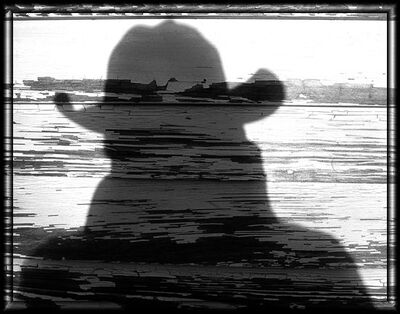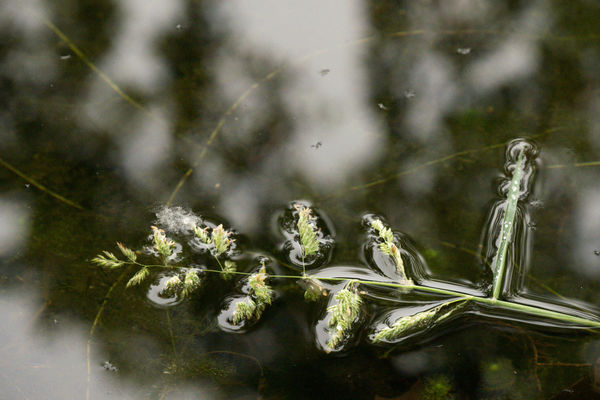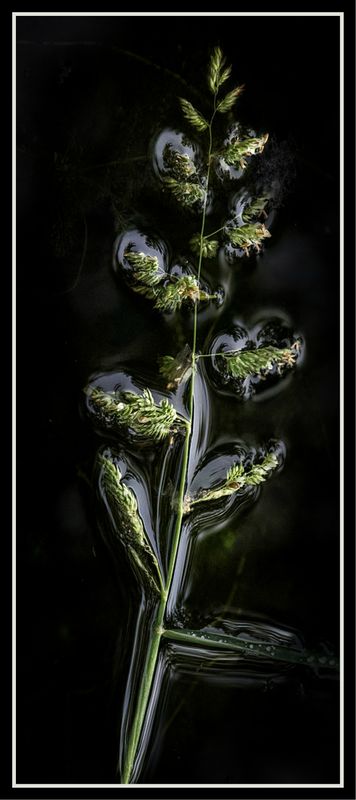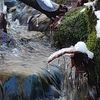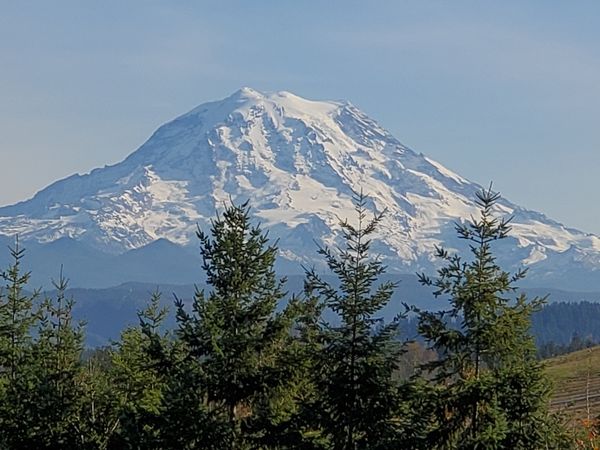How do you define or think of photographic vision? How important is it?
Nov 5, 2019 13:41:38 #
Linda From Maine wrote:
Connie, these are beautiful examples of processing to complete your artistic vision!
Linda, thank you. I try!
Nov 5, 2019 13:57:22 #
srt101fan wrote:
Much is made of the importance of a photographer’s vision and his/her deliberate actions performed to express that vision pictorially.
Not sure about how much is made of it by folks out shooting. It's time to let poor Ansel rest in peace.

There are those that think they can learn about photography by spending a lot of time discussing it.
There are those that think they can learn about photography by spending more time taking pictures. These folks have more pertinent things to discuss.
---
Nov 5, 2019 14:57:43 #
Linda From Maine wrote:
Sometimes I put photos together to tell a story that requires wordsFirst, I agree with htbrown that an image should stand on its own and not require explanation...except when it does. I'm thinking of documentary-type images for those cases where explanation may be needed. Sometimes a title provides just enough information. For fine art, I like the idea that viewers should be free to make their own interpretation; each person responding differently, based on their own histories and interests.
https://www.uglyhedgehog.com/t-420762-1.html
A story of this type usually comes together only as I look at them on the computer, although the example above came together in my head as I was shooting the photos; it was just a question when I got home of exactly which photos I was going to use.
Nov 5, 2019 15:00:08 #
rehess wrote:
It's hard to go wrong with humorous captions of cute critters Sometimes I put photos together to tell a story that requires words
https://www.uglyhedgehog.com/t-420762-1.html
A story of this type usually comes together only as I look at them on the computer, although the example above came together in my head as I was shooting the photos; it was just a question when I got home of exactly which photos I was going to use.
https://www.uglyhedgehog.com/t-420762-1.html
A story of this type usually comes together only as I look at them on the computer, although the example above came together in my head as I was shooting the photos; it was just a question when I got home of exactly which photos I was going to use.

Nov 5, 2019 15:03:15 #
Gene51 wrote:
I've been at this for 52 years. in the beginning, ... (show quote)
Well, my "intent" when I take a photograph is to capture beauty. Plain and simple. And I've been at it for at least 50 years. And I'm the best I've ever been right now.
Nov 5, 2019 15:30:15 #
srt101fan wrote:
From gaining the experience to "see" (ref RichardTaylor's comments), I think those who are interested in post processing as part of the art of photography sometimes simply harvest pixels. (I stole that description, btw ... Is there room in your photography to give your sub conscience an active voice...
 )
)In other words, the subconscious recognizes potential, but it isn't a fully formed idea until pp.
I'm not suggesting the below will stop people in their tracks, but I'm offering as an example of my point. My eye caught what I thought was pretty cool surface tension around this floating grass seedhead. So I harvested the pixels, and after extensive editing, I printed and like it a lot.
I understand the value of deliberate, thoughtful pre-visualization, then composing "just so," but I hope folks also learn to trust their inner voice and as Fred Harwood advised, "...also shoot the unplanned. One never knows what's around that next corner."
Nov 5, 2019 15:35:07 #
srt101fan wrote:
Much is made of the importance of a photographer’s... (show quote)
You see above, and will continue to see I think, as many "answers" as there are answerers. I have taught thousands of students and conducted hundreds of critiques. The answer is simple, but non-specific. People fall on a spectrum.
This spectrum, assuming you mean photographs rather than snapshots (I know, another gray area, but I think we generally know), goes from utterly "instinctive" to "scrupulous planning." Very few can move very far from where they fall, genetically and culturally, on that spectrum. I would ask students, "Would Michael Jordan (yes, I taught back then--substitute Lebron or anybody) say, 'I'm good at basketball, I think I'd rather be a jockey.'?" "No," I'd say, "when he discovered what he was good at, he worked his ass off getting better at that. Do the same."
If you are happily making good photographs (up to you if you're doing it for yourself, or confirmed by other good photographers and critics if you want objectively good photos), just keep improving. If not happy, edge towards more "instinctive" or more "thought-out," and see if one or the other works better. Then work on.
For me, I tried a number of subjects and techniques. As my vision, what really interested me, because clearer, I found I was instinctively drawn to something that I could plan the best way to shoot as I was shooting.
Nov 5, 2019 16:37:20 #
Bokehen wrote:
Visualization does help when seeing what you're wa... (show quote)
Are you going to put those keys back in the keyboard? If not can I have those keys?
Nov 5, 2019 17:21:59 #
When you look at something, you see a wide shot, but often disregard the less important bits. Your brain 'processes it' by matching 'things' that you have seen before. When the camera does this - it looks wrong or rather, is less satisfying.
Photographic vision is simply the ability to concentrate on what 'important bits' you want to capture out of 'the whole' that you see. Often this is almost subconscious decisions about placement, but...occasionally you need to walk around 'the thing' to get the better shot. Or come back another day when conditions 'improve' what you want to capture.
It could be that: given time you learn from your own work what pleases you....or you recall a similar image by someone else that you want to emulate....either way.....your photography evolves. Practice may not make perfect....but it does improve some.
A picture telling ten thousand words was coined by a newspaper man.....not a photographer!
The story YOU see.....differs from what others interpret....Art is in the eye of the beholder...(or the 'Artist' has gained a name for whatever reason so it must be 'good'.). However....a title can focus a person's mind a little...even if it is just a smile, because non-photographers also look at photographs too. Even people who have no training in art or creativity 'like' certain things, with or without 'interpretation'.
Having a 'vision' simply means you enjoy certain things 'in a certain way'. The named artists would talk you through the 'meaning' of what they did....or 'critics' would earn a living by 'telling you' what you were meant to see. How many books are there on 'great art'!!!
If you are wanting to create photographs that please yourself: then explore what you 'like'. If you want to impress others learn to tell an 'epic' story about how difficult it was to 'capture' that particular 'one of a kind' image.
Have fun
Photographic vision is simply the ability to concentrate on what 'important bits' you want to capture out of 'the whole' that you see. Often this is almost subconscious decisions about placement, but...occasionally you need to walk around 'the thing' to get the better shot. Or come back another day when conditions 'improve' what you want to capture.
It could be that: given time you learn from your own work what pleases you....or you recall a similar image by someone else that you want to emulate....either way.....your photography evolves. Practice may not make perfect....but it does improve some.
A picture telling ten thousand words was coined by a newspaper man.....not a photographer!
The story YOU see.....differs from what others interpret....Art is in the eye of the beholder...(or the 'Artist' has gained a name for whatever reason so it must be 'good'.). However....a title can focus a person's mind a little...even if it is just a smile, because non-photographers also look at photographs too. Even people who have no training in art or creativity 'like' certain things, with or without 'interpretation'.
Having a 'vision' simply means you enjoy certain things 'in a certain way'. The named artists would talk you through the 'meaning' of what they did....or 'critics' would earn a living by 'telling you' what you were meant to see. How many books are there on 'great art'!!!
If you are wanting to create photographs that please yourself: then explore what you 'like'. If you want to impress others learn to tell an 'epic' story about how difficult it was to 'capture' that particular 'one of a kind' image.
Have fun
Nov 5, 2019 18:46:46 #
Retired CPO wrote:
Well, my "intent" when I take a photograph is to capture beauty. Plain and simple. And I've been at it for at least 50 years. And I'm the best I've ever been right now.



And next year you'll be better still!
Nov 5, 2019 19:32:51 #
rjaywallace wrote:
Well said, sir!
YW rjaywallace even though I've return to check back to what I said.. typos run rampant.. blah
BebuLamar wrote:
Are you going to put those keys back in the keyboard? If not can I have those keys?
Sure thing, Pm your address and I'll send them to you. This was for an old school IBM keyboard or does this matter? I suspect you just want the keys so I don't take anymore nonsense images in the future.. :p
Nov 5, 2019 23:29:14 #
srt101fan wrote:
Much is made of the importance of a photographer’s
vision and his/her deliberate actions performed to
express that vision pictorially. The argument goes
that a good photographer always knows what he/she
wants and knows how to get it. .......
Much is made of the importance of a photographer’s
vision and his/her deliberate actions performed to
express that vision pictorially. The argument goes
that a good photographer always knows what he/she
wants and knows how to get it. .......
After decades in this bidnez, I cannot escape
my photographic vision. I can hardly exercise
any other vision. Therefor I resist nearly every
tempting "photo op" that parades before my
eyes. I mean only that I resist recording them.
I consider most of them rather thoroughly and
when I have the ultimate version in mind, I'm
usually done with the "exercise". No record is
made, except in rare cases ... like under 5%.
"Cast not ye pearls before swine" !
Nov 6, 2019 04:18:16 #
Linda From Maine wrote:
First, I agree with htbrown that an image should s... (show quote)
I too photograph similar to you. My wife and I decide what we want to photograph that day and seek it out. In that process there are always pics that just seemed interesting at the moment. Sometimes they really are and sometimes they are not. Matters not due to digital.
Nov 6, 2019 06:50:59 #
srt101fan wrote:
Much is made of the importance of a photographer’s... (show quote)
I personally as an Advanced Amatur, with my Nikon D3300, enjoy Attractive & Memorable Landscape & Nature Photography. I enjoy capturing the Beauty of Creation. I have Captured some real Keepers that I have enjoyed, but also some that I thought in the moment were quite stunning, but then reality stepped into the picture, maybe not so good.
That is why I enjoy UHH, I get inspiration and ideas from my fellow Photographer's. Thanks.
Nov 6, 2019 07:09:07 #
I don't usually plan or visualize my photos ahead of time, but I do pay attention to composition more now than I used to. But even though I get lots of compliments on social media, I don't consider most of my photos great.
If you want to reply, then register here. Registration is free and your account is created instantly, so you can post right away.

